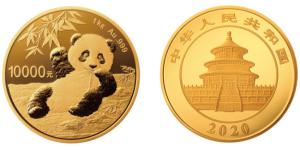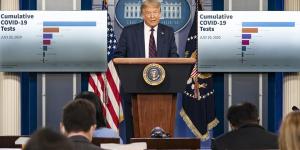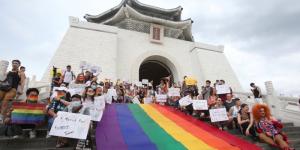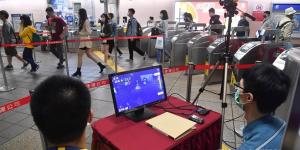Join us for a free one-day workshop for educators at the Japanese American National Museum, hosted by the USC U.S.-China Institute and the National Consortium for Teaching about Asia. This workshop will include a guided tour of the beloved exhibition Common Ground: The Heart of Community, slated to close permanently in January 2025. Following the tour, learn strategies for engaging students in the primary source artifacts, images, and documents found in JANM’s vast collection and discover classroom-ready resources to support teaching and learning about the Japanese American experience.
Although WeChat is the most popular part of the Tencent empire and is deeply embedded in the everyday lives of Chinese, it doesn’t generate most of the company’s revenues. This week we look at Tencent and how it generated US$54 billion in revenue last year.
With more and more of our everyday shopping taking place digitally, we looked into who the big players are in the U.S. and China through four charts.
President Trump is worried that user data from the 45.4 million Americans on TikTok, owned by Chinese company ByteDance, could be handed over to the Chinese government and set a September 15th deadline for the app to be sold to a U.S. company or risk being banned.
Gold is an ancient store of value. Bitcoin and other cryptocurrencies are recent inventions. Price swings for both can be dramatic. Gold has almost reached its 2011 peak. Bitcoin has climbed rapidly, but is still only a bit more than half the price it was in December 2017.
The COVID-19 pandemic reconfigured human activity across the globe. Differing political systems, priorities and social norms have yielded significantly different outcomes between China and the U.S. and within the two countries.
Donald Trump’s 2016 presidential campaign included a pledge to reduce America’s trade deficit with China but after a January trade deal, things started to unwind
With the 50th anniversary of the world’s first gay pride parade in Los Angeles, we look across the Pacific at the two very different climates provided to LGBTQ individuals in China and Taiwan.
Early on, the Trump administration identified access to American universities as helping China advance. The administration has been pushing back against this in several ways, including the Department of Justice’s China Initiative which has American academics among its targets. Now students from China are under greater scrutiny.
Packed trains and buses are the perfect place for viruses to spread. Cities in the U.S. are looking to Taipei as an example of what to do right.
How does the U.S. and China diverge when it comes to combatting illicit wildlife trafficking and protecting the ecosystem? The answer might surprise you.
Pages
Featured Articles
Please join us for the Grad Mixer! Hosted by USC Annenberg Office of International Affairs, Enjoy food, drink and conversation with fellow students across USC Annenberg. Graduate students from any field are welcome to join, so it is a great opportunity to meet fellow students with IR/foreign policy-related research topics and interests.
RSVP link: https://forms.gle/1zer188RE9dCS6Ho6
Events
Hosted by USC Annenberg Office of International Affairs, enjoy food, drink and conversation with fellow international students.
Join us for an in-person conversation on Thursday, November 7th at 4pm with author David M. Lampton as he discusses his new book, Living U.S.-China Relations: From Cold War to Cold War. The book examines the history of U.S.-China relations across eight U.S. presidential administrations.














